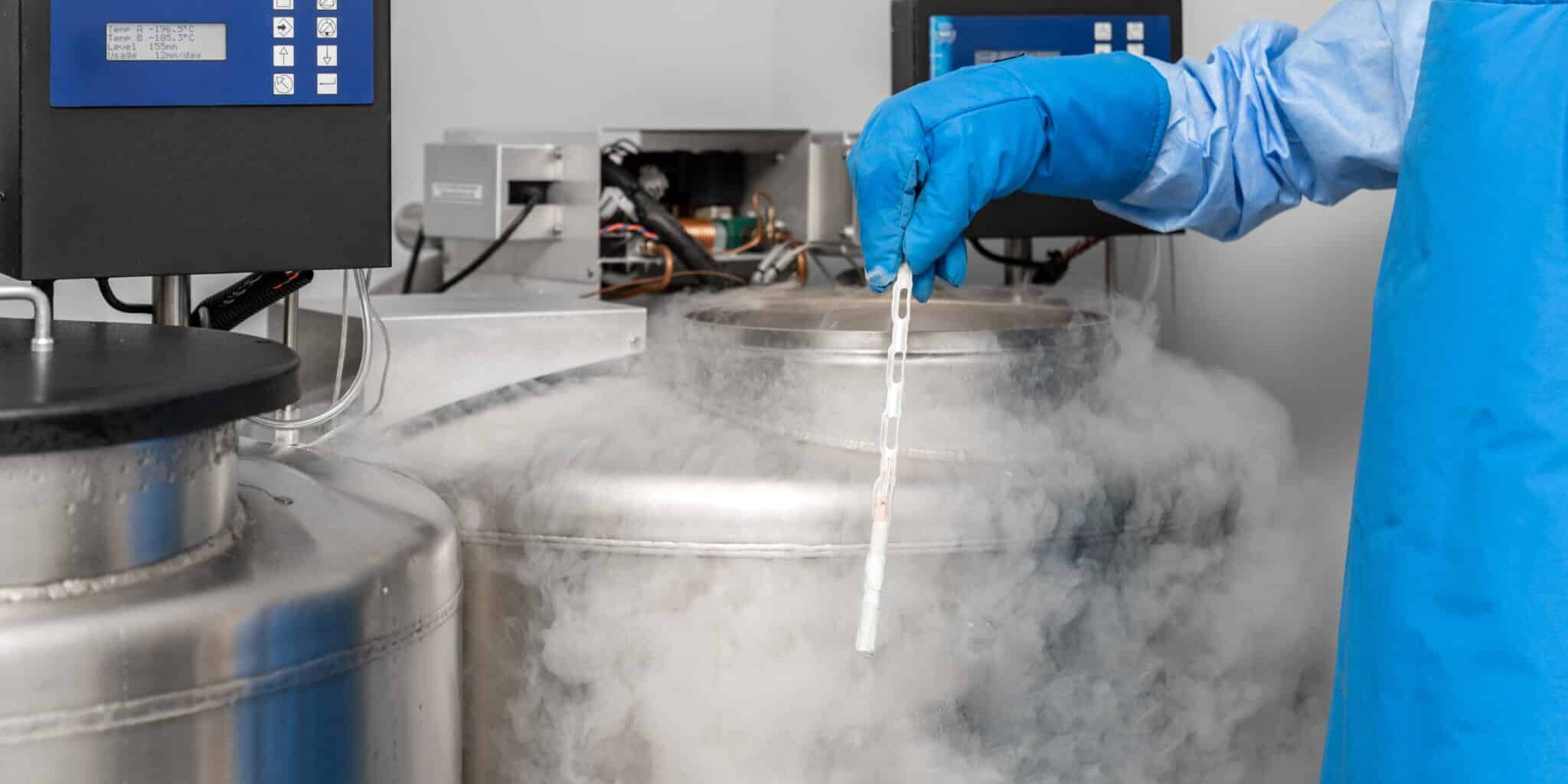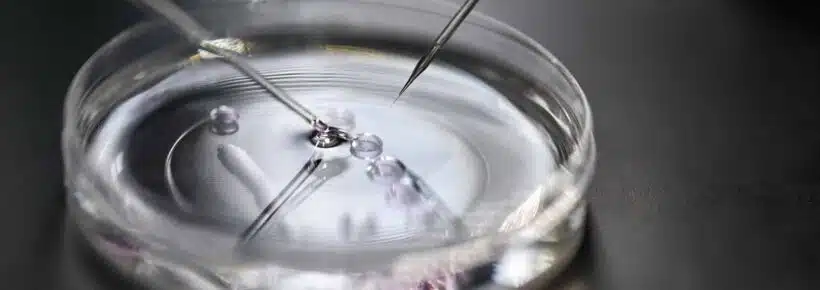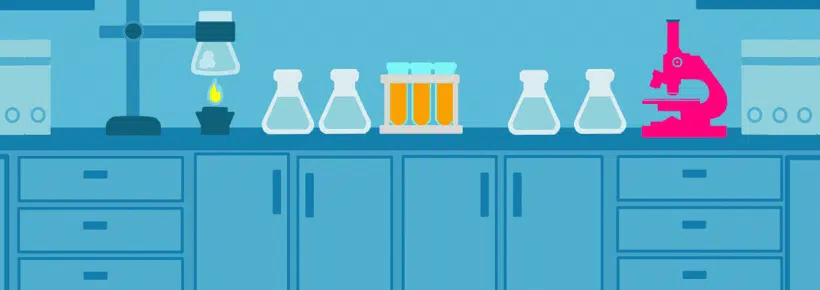Nowhere else on earth except on a skinny white plastic stick can two vertical lines create such immense joy. What’s represented by those two lines—the culmination of marital love and unity—is the fulfillment of long-held hopes and dreams. Indeed, they often evoke tears of happiness and maybe even a little victory dance. These two lines tell us that a baby has been created.
Genesis 1:28 says: “God blessed them and God said to them: Be fertile and multiply; fill the earth and subdue it.” The Catechism of the Catholic Church teaches us that “by its very nature the institution of marriage and married love is ordered to the procreation and education of the offspring and it is in them that it finds its crowning glory. Children are the supreme gift of marriage and contribute greatly to the good of the parents themselves.” It is therefore only natural that couples long to have children.
For many, the desire to have a child, or many children, is immense. Children are wonderful blessings. Children give us hope for the future. Children make families whole. And, for most people, this desire for children is easily fulfilled. But what happens when that desire to have a child results in negative pregnancy test after negative pregnancy test? That void in a mother’s or father’s life—and in their hearts—seems bottomless. They begin to feel despair, a lack of hope, and desperation.
It is this despair, coupled with the fierce desire to conceive, that leads people to seek out the help of in vitro fertilization to create a child. After all, they think, why does it matter how our child is created if we love and take care of him? However, the Catechism and our faith teach us that it does matter.
What is IVF?
In vitro fertilization is a method by which a male’s sperm and a female’s eggs are collected by a physician then mixed in a petri dish in the hopes that one or more of the eggs will become fertilized.
Science teaches us that, from the very first moment an egg is fertilized, it becomes an embryo—and an unrepeatable human being now exists.
The Church teaches that the only moral way to conceive a child is through the loving embrace of the marital act. The dignity of the child requires this of us. This beautiful, wonderful expression of love between the husband and the wife works in cooperation with God to create a totally separate human being. That is why we call it procreation rather than creation.
According to Donum Vitae, IVF is considered sinful partly because it dissociates the sexual act from the procreative act. The act that brings the child into existence is no longer an act by which two persons give themselves fully to one another under God’s embrace, but instead it “entrusts the life and identity of the embryo into the power of doctors and biologists and establishes the domination of technology over the origin and destiny of the human person.Such a relationship of domination is in itself contrary to the dignity and equality that must be common to parents and children.”
As the Catechism of the Catholic Church teaches,
Techniques that entail the dissociation of husband and wife, by the intrusion of a person other than the couple (e.g., donation of sperm or ovum, surrogate uterus), are gravely immoral. These techniques (heterologous artificial insemination and fertilization) infringe on the child’s right to be born of a father and mother known to him and bound to each other by marriage. They betray the spouses’ “right to become a father and a mother only through each other.”
We must also understand that every child possesses genuine rights: the right “to be the fruit of the specific act of the conjugal love of his parents,” and “the right to be respected as a person from the moment of his conception.”
IVF is Morally Unacceptable
In 2008, the Congregation for the Doctrine of the Faith wrote about the dignity of the person in Dignitas Personae. It stated: “The blithe acceptance of the enormous number of abortions involved in the process of in vitro fertilization vividly illustrates how the replacement of the conjugal act by a technical procedure – in addition to being in contradiction with the respect that is due to procreation as something that cannot be reduced to mere reproduction – leads to a weakening of the respect owed to every human being.”
Children are not a given. They are “the supreme gift of marriage” (CCC 2378). When children are created within the confines of a petri dish, they become a commodity.
As human beings created in the image and likeness of God, we are never to be something bought or sold. God freely gives us life, and we are to cherish that life, never profit from it or purchase it. We must never put a price on a human being, but that is exactly what IVF does. At around $15,000 to $20,000 per round of IVF, this medical procedure often sucks bank accounts dry, depletes retirement accounts, and takes advantage of desperate potential parents. And, with a success rate at only about 42% for women under 35—and much less for older women—IVF is no guarantee or easy solution.
Creating, Freezing, and Discarding Embryos
Setting cost aside, let’s look at what happens when embryos are created in a dish. A doctor will determine which of these embryos have the greatest potential to grow further if implanted, so he will choose those. That leaves the remaining ones to be either frozen or discarded. After a few potential embryos have been selected, the parents can choose how many will be implanted in the mother’s uterus.
If, for example, five babies were deemed to have the best potential, the mother might choose to have three implanted and save the other two for a future time. If the parents so desire, these remaining embryos will then be frozen. But they have other options as well, including donating them to another infertile couple (CCC 2376), donating them to science for research, and disposing of them.
All of these instances are highly immoral. For instance, any of those “extras” – having been fertilized – are human beings. Generally, multiple embryos are implanted because not all of them (or any) may “take.” Sometimes, if multiple babies have attached and begun to grow, the doctor may even suggest that “extras” be eliminated for the good growth of one or two. Any “disposal” of embryos is an early abortion.
None of these options afford a baby the dignity and respect he deserves as a child of God. Furthermore, when we use science to create children, we are usurping the role of God and putting our wants and desires above His. We are telling Him that we do not trust His plans and that we refuse to follow His laws in search of our own selfish desires.
Babies created in IVF labs are human beings. They are somebody’s children. They have souls. To discard them, give them up for research, or to leave them frozen indefinitely is a sickening prospect.

Hope for Infertile Couples
The Church understands the anxiety and the grief that come with infertility. Many saints have undergone similar difficulties, and spouses can turn to them for help. There’s a patron saint of pregnancy for every situation, including overcoming infertility. And Catholic ministries like Springs in the Desert and The Fruitful Hollow are available to offer solace and peace during these difficult times. These groups provide resources, small group meetings, and information about moral treatments for couples facing infertility.
One such place that offers ethical treatment for infertile couples is the Pope Paul VI Institute for the Study of Human Reproduction. According to its website, its natural techniques “provide effective, morally acceptable, and sexually healthy options for women and couples” so that they can achieve a successful pregnancy.
The mission of the institute is to help couples achieve fertility through morally licit means. These treatments include ovulation drugs, surgeries, and a technique called NaProTECHNOLOGY (natural procreative technology)—a technology that helps women monitor and maintain their reproductive health—to remedy problems created by conditions such as endometriosis, pelvic adhesions, polycystic ovarian disease, obstructions of the fallopian tubes, hormonal dysfunctions, and more.
The institute explains that many of these underlying conditions can be treated so that the couple can conceive a child naturally rather than having to resort to IVF.
As the site explains:
By identifying and treating the underlying diseases that cause infertility, the Institute harnesses the body’s ability to work more effectively as opposed to “driving” the reproductive system, “pushing” the system, or trying to “replace” the system. The effectiveness of the program varies depending upon the type of disease that occurs. In some cases, the Institute’s effectiveness is greater than 80 percent in assisting a couple to successfully achieve a pregnancy.
The Saint Paul VI’s Institute’s tremendous success with patients is even greater than the success rate of IVF.

Final Thoughts
The devastation, the loneliness, and the sadness that couples feel when they cannot conceive a child is real, and we should pray daily for them and encourage them to pray for the intercession of saints such as St. Gerard, St. Rita, and St. Gianna Molla. But we must remember that the desire to have a child cannot take precedence over the life of a human being. Our faith calls us to cherish and respect life—at all stages—even in its tiniest form.
If you are suffering, know that Christ carries you through your difficulties and will help heal your pain. Know that there are groups and doctors out there who want to help you and who can help you. Prayerfully seek them out.
But know also that the Church must remain adamant in its teaching about IVF because all human beings matter, and all have value. We are all created in the image and likeness of God, and not a single one of us is expendable.
This article was originally published in May 2019 and was most recently updated in June 2024 by Susan Ciancio.
Related Content
Susan Ciancio has a BA in psychology and a BA in sociology from the University of Notre Dame, with an MA in liberal studies from Indiana University. Since 2003, she has worked as a professional editor and writer, editing both fiction and nonfiction books, magazine articles, blogs, educational lessons, professional materials, and website content. Fourteen of those years have been in the pro-life sector. Currently Susan writes weekly for HLI, edits for American Life League, and is the editor of its Celebrate Life Magazine. She also serves as executive editor for the Culture of Life Studies Program, an educational nonprofit program for k-12 students.










As a person actually dealing with this situation, and living with the in’s and out’s of this. I’m really disappointed in everyone whose commented and even the writer of this article. My husband and I are devout traditional Catholics, and I’ve very much been struggling with this issue spiritually, emotionally, physically. My husband not unlike many young people have unexplained infertility. We are both under 30 for reference. Our issue could be solved if IVF were an option for us. I can tell you it’s not as easy to hear people say, “Oh well, you can adopt a child there are lots out there that need parents.” Shame on you. We’ve dreamed of having our own biological children for many years and we’ve always talked about this as being the single greatest joy in life. Replacing that dream with someone else child is not the same thing, and we shouldn’t pretend it is. Also, those children in adoption deserve to be wanted for them not to fulfill an emptiness in a infertile couples family. Shame on you. They’re not a fill in just because infertile couples can’t have children. What about those couples with 1,2, 3, 4, 5, 6, 7, why can’t you adopt a child? Why don’t those children deserve a place in your home? It’s not an alternative only for infertile couples who feel that they “must have children”. Shame on you. Adopt is also extremely expensive! Costing triple or more the cost of infertility treatments. MY wish is for everyone to be more empathetic and truly understand that what would be really helpful is for the church to give directions on how to pursue IVF in a moral way. How do we use technology to give infertile couples a chance at having a family? This article called out Napro technology and the St. John Paul VI institute, and for our circumstance and may others who seek IVF type treatments you are gravely mistaken. There is a lot of great work that has been done for women and helping women with infertility issue by these groups, but these groups or types of treatment options available do not account at all for male factor infertility. I’m saddened by all of this, because while you all sit here drawing up articles trying to articulate the churches position on these matters, and giving your opinions you can’t empathize with those couples who are really hurting by this position.
How narcissistic.
Not a traditional devout catholic at all.
Church teaching doesn’t revolve around your emotions. You need to get your emotions in check, or perhaps some mental counselling and medication, and align them with the church. Quit behavior like you are the first infertile couple in history. Don’t you think they learned how to deal with it and get through life?
Your response is deeply lacking in charity. I totally agree with Alexandra. My wife and I have struggled with infertility for 8 years. We lost our one and only pregnancy some years ago at 3 months pregnant due to a rare kind of ectopic pregnancy where the embryo had attached itself in the uterus. Doctors told my wife that the baby was not viable and that she needed to abort the baby the next day otherwise she could bleed to death. The advice from the devout catholics we contacted was – she must have her uterus removed in order to indirectly remove the embryo, as opposed to directly removing it through abortion. So leave my wife infertile with all the psychological distress that would cause her, only to remove the embryo (‘indirectly’) anyway.
I am still catholic, but from that day my eyes were opened to the ludicrous legalistic minefield the church has created for so many who do not fall comfortably inside it’s black and white teachings.
Feelings always seems to override rational thought and moral teaching. In our secular society science is now God in many peoples minds.
As a father husband and physician: I cannot understand how a couple could except an egg or sperm from a family member or close relative, have it inserted into the womb and then Call it their child.? Science would tell us and DNA analysis would confirm that it is not their child. It is the child of the donors. They were nothing but an incubator.
The day will come when the womb will not be necessary and babies will be born out of a plastic or steel artificial womb.!
This is how much the value of life has been degraded within our society. May God forgive mankind when that day arrives
In search of self satisfaction and happiness without God, couples will go to extreme measures to find “happiness“ ….While millions of children Live in poverty or are raised by evil non-caring people Around the world
Adoption should always be the alternative if one feels they“must” have children.
I read above about Tradition saying this or that, but no actual original sources containing the relevant Tradition are cited. How can we check to see whether these claims about Tradition are true or not? Are there any scholarly sources that you can refer us to?
As a devout Catholic who understands the concepts on this article, I am deeply saddened by the harsh tone on a very sensitive subject. The author has taken great care to research the Catholic teachings but has twisted what is written about IVF. Painting in broad strokes about what IVF is and entails without any data is irresponsible. Fine to have the dialogue and share the teachings but please use some facts. To say “often selective abortion of babies is done when too many take” is just wrong. Use facts and when you do, I think you will find that your statement is false and therefore you are basing teaching on generalizations and your uninformed perspective. Single embryo transfers are the recommended approach and in some states there are laws for this and insurance restrictions and ethics of doctors against multiple transfers to avoid the destruction of life that you describe. I could debunk many more of your statements about IVF. Shame on you for passing judgement and making assumptions about the reasons why couples might seek treatment. Open your mind and heart to dialogue on topics which you clearly would benefit from information. Articles like this are exactly why the Catholic Church is losing young couples and attendance is down in age groups. I am disgusted but fortunately others in the church have a much more accepting and open-minded position on this topic and have offered insight into Catholic teachings on this topic in a caring, supportive and empathetic way. Scaring couples into avoiding IVF because of your inflammatory interpretation is so harmful.
By the way, adoption is just as much a for-profit business and one by which couples select children based on their preferences and they can give them back if they no longer want them. This article is baseless and out of touch on IVF.
Hi, Katherine.
So where is your credibility? How has the author twisted what is taught about IVF? It is in line with Church teaching. Read Donum Vitae. Why are you assuming they don’t have data? If you have so much data that they don’t have, why didn’t you provide it? You said that there were certain laws, insurance restrictions and ethics concerning the destruction of human life. If you could debunk more statements, why didn’t you? The author is judging the action itself, not the motive of the people doing it. If an action is objectively wrong, opinions or feelings are irrelevant. The “assumptions” the author made concerning the reason people seek IVF are general and may not apply to every person who seeks IVF. But I am willing to bet that it is a majority. If anyone seems to be passing judgment, it is you. You are the one assuming that they did not study this deeply before writing this article and responding to the comment. Furthermore, people need to be firmly reprimanded on the morality of IVF since it is a serious issue. If they found this article, it is probably because they are seeking the answer to what the Church teaches and its rationale. How do can you really be supportive of someone who commits the sins related to IVF? How is this an “inflammatory” interpretation if it is reiterating what the Church teaches?
The difference between adoption and IVF is that adoption deals with people who are already alive and born. The fact that adoption is a for-profit business is not great, but is not the concern for people who want children and are trying to stay in line with the Catholic Church. If people are so picky about what kind of child they want in adoption, maybe they shouldn’t be parents at all.
If you are so much better at being empathetic and know so much more, why haven’t you considered writing more articles on this? I think you’d be great!
I am not Catholic but I am pro-life. As a mother of 2 sons conceived through IVF I have to disagree with this article. First, adoption in large is a for profit business in this and other countries. Second, I do believe it is immoral to discard or use for research human embryos. I used all of my embryos and steps can be taken to limit the number of embryos created. IVF success rates have improved greatly. In my case I had a transportation problem with my fallopian tubes. There is in fact psychology and social science research in regard to IVF children and how much they are wanted by their parents. My children were not “unexpected or unplanned ” and they will always know how much they were wanted. We sacrificed a lot to get them here and they are loved of God and loved by a mother and father who are married and faithful to one another. We are also interested in adoption which is just as expensive often times more so then IVF. Yes, not all embryos “take” but this is true with natural conception as well you are just not aware of it. You may conceive and never know not even with a blood test because the embryos never implanted. With IVF you just know that it happened.
Thanks Amanda. First, we applaud that you are pro-life in that you are anti-abortion. You must know we are created in God’s image and we are glad you have your lovely children. As a non-Catholic, you may not be aware, though, that there are many issues of IVF that are contrary to Catholic teaching, one of which is the one you mention, destruction of embryos that have been fertilized, as we recognize these lives as human from the moment of conception. So for instance, IVF leads to the abuse of thousands of lives being frozen and dying – yours were not, but this happens worldwide. Secondly, there is a debate within some groups of theologians that perhaps it is better to implant and save an embryo rather than destroy it, but there is no clear bioethical answer there. Thirdly, fertilizing the embryo requires usually masturbation on the part of the man, which is also considered sinful. Fourth, when IVF is done, often selective abortion of babies is done when too many take.
The real reason at the heart of everything though? The basis is marriage is a Sacrament within our church, ordained for the creation of children. A Sacrament is an outward sign instituted to give grace, and if you look up the Catholic Catechism online, you can doubtless read more about all these aspects. A child may only be conceived in the marital embrace, by a married couple, open to life. Sexual relations are an incredible gift, and as Fulton Sheen’s famous book, “Three to Marry” indicates, it is wife, husband and God that combine in marriage and lead to the creation of children, which in turn mirrors the Holy Trinity. By turning to IVF, the door to many evils is opened on many levels and we have today even couples that are using semen from relatives (incest, really), surrogacy (also sinful) or other means to have children (for instance a recent woman who is transitioning to a man but has a lesbian “wife” and used IVF to gain donor sperm). So you see, IVF has opened a Pandora’s box.
Please do not see this as a condemnation or judgement but an explanation. We are always happy to witness to Catholic teaching, which is based on both the Bible and tradition (due to the apostolic tradition – teaching passed hand to hand down the centuries through the apostles). So we invite you to further explore and feel welcome in our church, and again, we are delighted that you gave your sons life, because with God, there are no accidents. God bless.
Very informative, thankyou.
I always feel that the positive side of infertility is that a couple has the option to adopt a child that needs love and a home. I think that is such a beautiful gift to give.
I thought I was unable to have children early in my marriage and understand the grief.